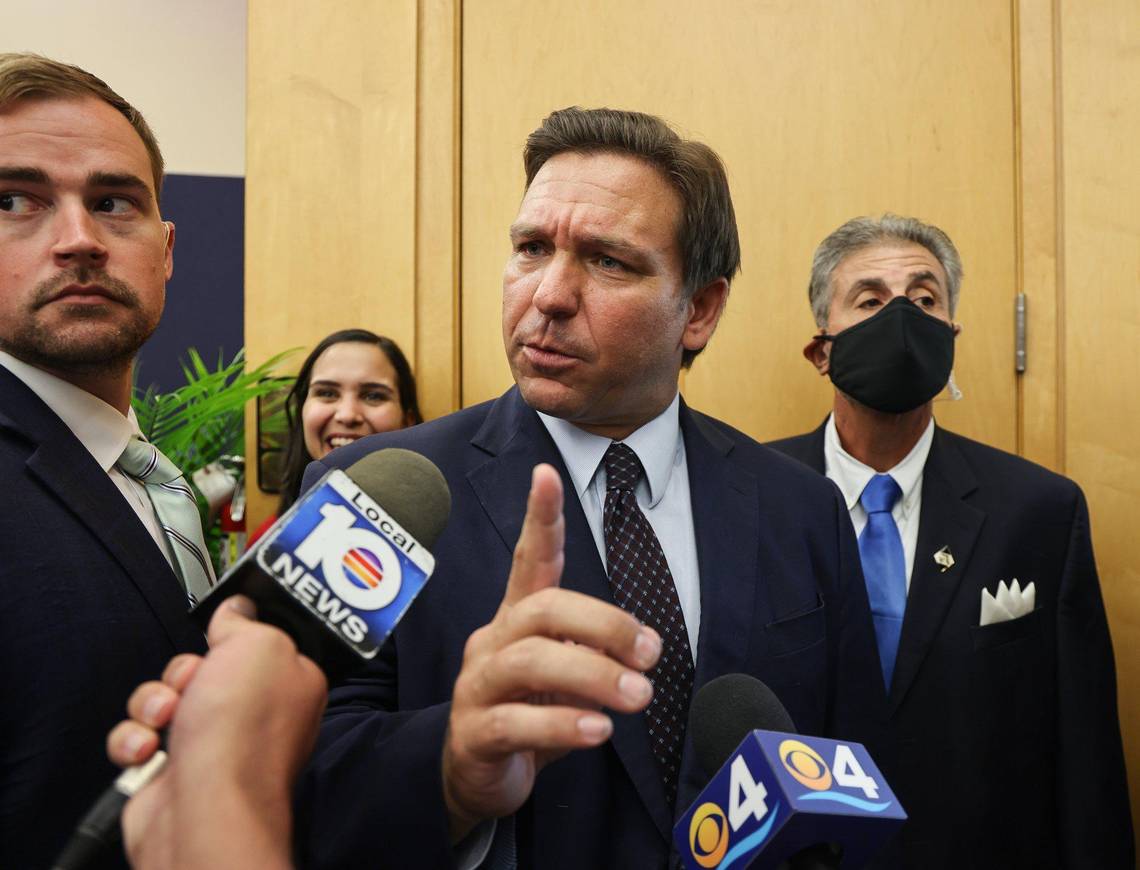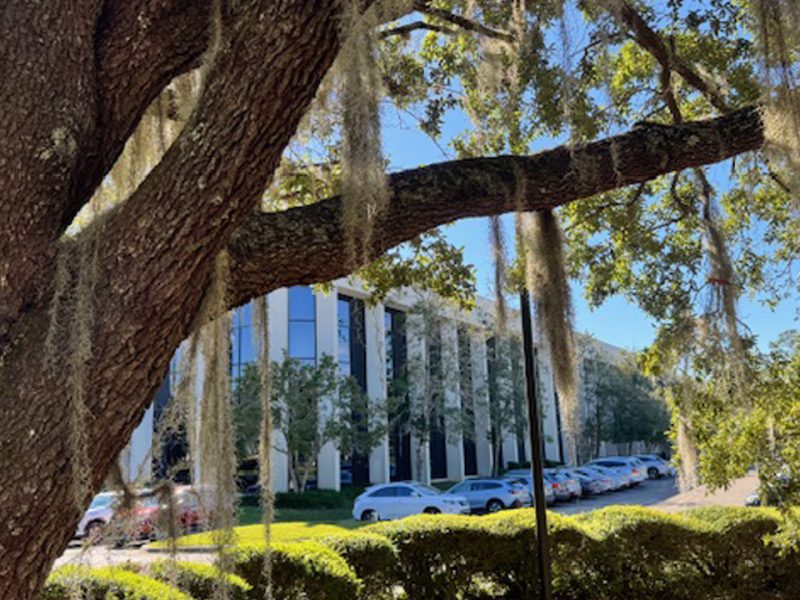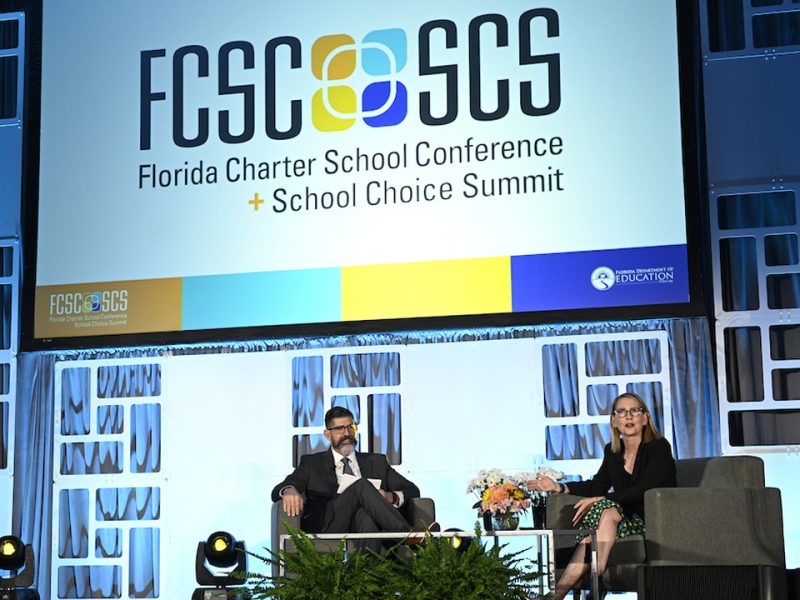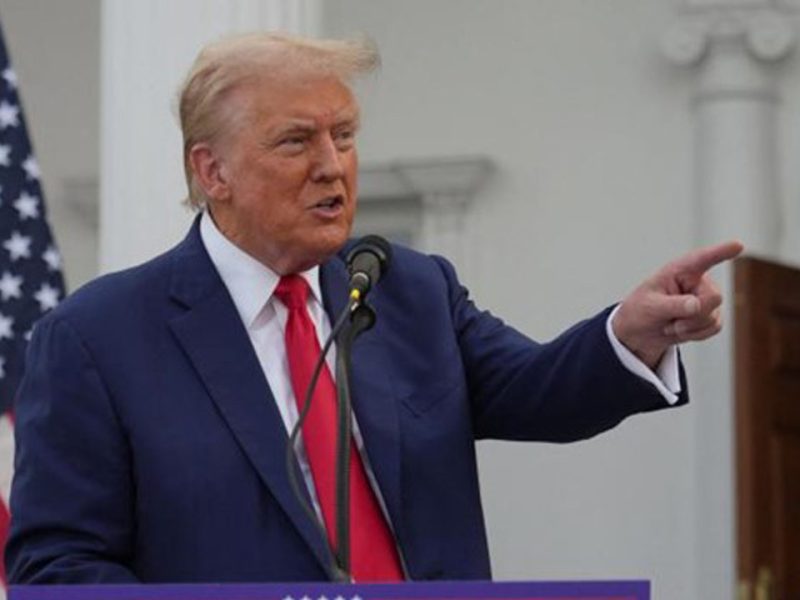
DeSantis’ veto stuns Republican sponsors of bill promoting civic literacy in students
Bradenton Herald | By Divya Kumar | June 30, 2021
Last week, high school students in the Civic Fellows Program at the University of South Florida’s St. Petersburg campus were welcomed with a brief video message from Gov. Ron DeSantis.
“This first in the nation initiative, in partnership with USF, is certain to provide you all a great head start to your college careers,” DeSantis said in the 2020 video. “I applaud you for your desire to research important public policy issues and to learn more about how our legislature, judiciary and executive branches work.”
But this week, DeSantis vetoed a bill centered on civic literacy education that would have developed a civic literacy practicum and established the existing program at USF St. Petersburg as the Citizen Scholars Program, providing high school students with college credit for their participation.
While the governor signed a series of bills last week intended to improve civic literacy in the education system, late Tuesday night he vetoed SB 146 — a bill that had unanimously passed in both the House and Senate.
The bill called for establishing a practicum for high school students, allowing them to “evaluate the roles, rights, and responsibilities of United States citizens and identify effective methods of active participation in society, government, and the political system.”
In his brief veto letter, DeSantis wrote that his administration has done much for improving civics education.
“The proposed bill seeks to further so called ‘action civics’ but does so in a way that risks promoting the preferred orthodoxy of two particular institutions,” he wrote.
But what the “preferred orthodoxies” are remains unclear.
Last week, at a Board of Governors meeting, Senate President Wilton Simpson called Florida’s universities “socialism factories” and Speaker of the House Chris Sprowls warned that universities were becoming spaces where one viewpoint is pushed.
The week before, the National Review, a conservative magazine, published an opinion piece calling for DeSantis to veto SB 146, calling it a way to insert critical race theory into the curriculum, and pointing to the YMCA’s “Unlearning Systemic Racism” tab on its website. It claimed the bill would give credit to students for participating in protests.
REPUBLICAN BILL SPONSORS ‘SHOCKED,’ ‘STUNNED’ BY VETO
The bill’s sponsor, Sen. Jeff Brandes, R-St. Petersburg, said he was “shocked” that the bill was vetoed and that the governor’s rationale was “amorphous at best.”
“I don’t understand what that means,” he said. “I think it’s purposely opaque.”
Rep. Ben Diamond, D-St. Petersburg, who sponsored the House version of the bill, said he had been told the bill would be signed and he had been asked to provide the Governor’s Office with a statement. Instead, he found out last night it had been vetoed and wished there had been an opportunity to address concerns if the governor had them.
“I think this is part of a larger political agenda to demonize our universities, demonize education,” Diamond said. “I just don’t get it. I’m sort of speechless. … I’m stunned that the governor would put his own political agenda ahead of the students in the state of Florida. I’m stunned and saddened by that. I think his veto really undermines public confidence in government and elected leaders’ ability to do what’s right for the people they serve.”
The program started at USF in 2016 as a partnership between the university and the Florida YMCA, with much input from the Legislature. It was intended, Brandes said, to give young people who were curious about government a way to understand how to tackle problems in their community.
Judithanne Scourfield McLauchlan, a USF political science professor and founding director for the Center of Civic Engagement, leads the yearlong program that includes a weeklong residential portion at the St. Petersburg campus. She said the high school juniors and seniors selected for the program come from across the state and include those who identify as Democrats, Republicans, Libertarians and with no party affiliation.
“Our approach has always been to be bipartisan, to be exposing students to a variety of viewpoints,” McLauchlan said. “There’s workshops on communication and working with people with different views.”
This year, participants attended a school board meeting, sat in on city council and county commission meetings and met Mayor Rick Kriseman. They also met with Lt. Gov. Jeanette Nuñez, Rep. Chris Latvala and House Speaker Sprowls.
USF PROGRAM TO CONTINUE
Sprowls said the important thing to keep in mind is that the funding for the program remains intact.
While funding was vetoed for during COVID, the program received $300,000 for this year.
Sprowls said nothing in the program’s curriculum was a cause for concern to him, but he understood where the governor was coming from.
“I think the governor has concerns, which I share, about a lot of different organizations that are engaged in the civics space about becoming very ideologically driven and pushing a specific ideology out, even if that ideology is well outside the mainstream,” he said.
He also said he thought this should be a cautionary tale for national organizations like the YMCA, that have become “increasingly radicalized” and have wide-reaching consequences for locally run YMCAs.
Lynne Wilcox, CEO of the Florida State Alliance of YMCAs, said the Y has run a Youth in Government program since 1957, even prior to partnering with USF, and many of its graduates now hold public office. This, she said, is just a bump in the road.
“It’s important to us that kids understand civics and they run for office and they run for their school boards, and we show them there’s avenues to be a change maker,” she said.
Sprowls said he still supports the program.
“I think those kids are more prepared to talk about the big issues and not get offended because somebody doesn’t agree with them,” he said.
All the veto does, he said, is create additional accountability in making the institutions seek funds each year.
Brandes, who also spoke with students last week, said there’s a civics lesson for students to be learned here, too: A bill can have unanimous support, but governors have veto powers.





